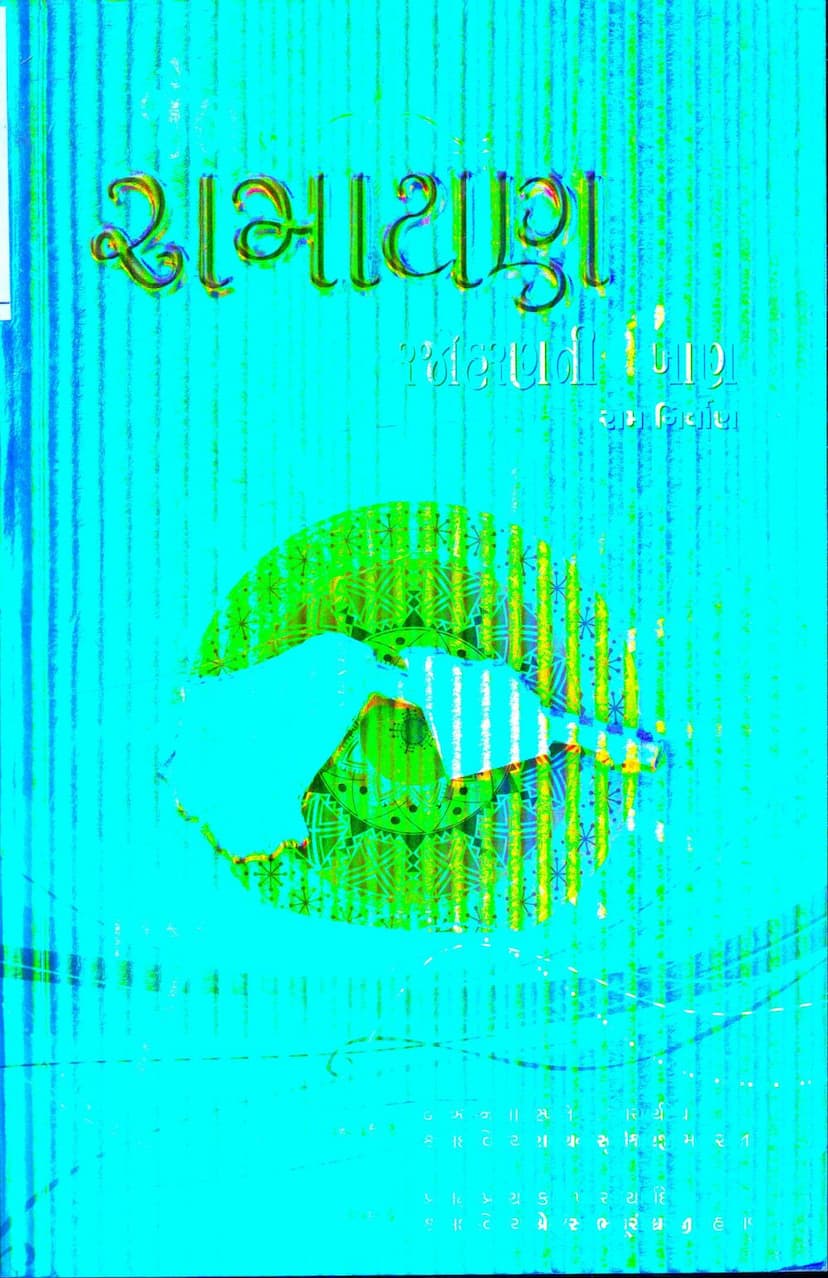Jain Ramayan Part 07
Added to library: September 2, 2025

Summary
Certainly! Here's a comprehensive summary of the Jain Ramayan Part 07, based on the provided text:
Book Title: Jain Ramayan Part 07 Author(s): Ramchandrasuri, Shreyansprabhsuri Publisher: Smrutimandir Prakashan
This volume, "Jain Ramayan Part 07," is the final part of a larger series titled "Jain Ramayan: A Mine of Religious Tales." It focuses on the events leading up to and including Rama's renunciation of worldly life, his spiritual journey, and his eventual attainment of liberation (Nirvana).
Key Themes and Content:
- The Significance of Kathaanuyog (Narrative Discourse): The text emphasizes the importance of narrative discourse in Jainism, highlighting its ability to convey profound truths in an accessible manner, especially for younger or less learned audiences. It also stresses the need for both the speaker (Vakta) and the listener (Shrota) to possess the right qualifications and receptiveness for the teachings to be effective.
- Sita's Trials and Steadfastness: This volume delves into Sita's suffering after being abandoned in the forest. Despite her dire circumstances – being alone, pregnant, and falsely accused – her inner strength, self-reflection, and adherence to righteous principles are highlighted. Her self-criticism focuses on her past karmic actions rather than blaming others, showcasing her wisdom and equanimity.
- The Nature of Karma and Divine Justice: The narrative repeatedly underscores the principle that suffering arises from past actions (karma). Even virtuous souls like Sita experience hardships due to their karma, while the timely intervention of characters like Vajrangarajan (who helps Sita) is attributed to past merits. The text reinforces the idea that suffering is not random but a consequence of one's own deeds.
- The Ideal of True Service and Loyalty: The story of Kritantavadan, the general tasked with abandoning Sita, is presented as an example of true service. Despite the king's unjust command, Kritantavadan's internal conflict and respectful treatment of Sita demonstrate his loyalty to his conscience and his respect for virtue, even when obeying orders.
- The Importance of Discerning Truth and Resisting Popular Opinion (Lokvaad): The text criticizes the fickle nature of public opinion, which shifts from condemning Sita to praising her when her innocence is revealed. It advises individuals to rely on their own wisdom and understanding rather than blindly following popular sentiment, which can be misleading and detrimental.
- The Ideal of Self-Control and Renunciation: The narrative illustrates how even powerful individuals are subject to the laws of karma. Rama's eventual renunciation of his kingdom and family to pursue spiritual liberation is presented as the ultimate act of detachment and wisdom. This detachment is driven by the understanding of the impermanence of worldly pleasures and the ultimate goal of spiritual freedom.
- Past Life Connections and Karmic Retribution: The text extensively explores the concept of past lives and how actions in previous births influence present circumstances. It traces the karmic connections between various characters, including Rama, Lakshmana, Ravana, Sita, Sugriva, and Hanuman, to explain their present relationships and the unfolding events. The narrative reveals how seemingly unjust events often have roots in actions from past existences.
- The Power of Righteousness and Spiritual Pursuit: Despite the immense suffering and injustice faced by Sita, her unwavering faith and spiritual discipline are shown to be her ultimate refuge. Similarly, Rama's eventual renunciation and pursuit of spiritual knowledge highlight the Jain emphasis on liberation as the highest goal.
- The Role of Divine Beings and Teachers: The text features celestial beings and enlightened teachers (like Keval Jnani Shri Jayabhushan) who offer guidance and wisdom, particularly in resolving doubts and illuminating the path to liberation.
- The Events Leading to Rama's Nirvana: The final chapters detail Rama's decision to renounce the world after witnessing the consequences of his actions and understanding the true nature of reality through spiritual knowledge. His ascetic practices, attainment of omniscience (Keval Gyan), and eventual liberation are described as the ultimate triumph of spiritual endeavor.
Overall Message:
"Jain Ramayan Part 07" concludes the epic by presenting a Jain perspective on the Ramayan narrative. It emphasizes the Jain principles of karma, non-violence (ahimsa), detachment, self-control, and the pursuit of spiritual liberation (moksha) above all worldly considerations. The text portrays characters not as inherently good or evil but as souls influenced by their past karma, with the ultimate goal of breaking free from the cycle of birth and death through spiritual discipline and wisdom. The narrative serves as a moral guide, urging readers to reflect on their own actions, cultivate wisdom, and strive for ultimate salvation.